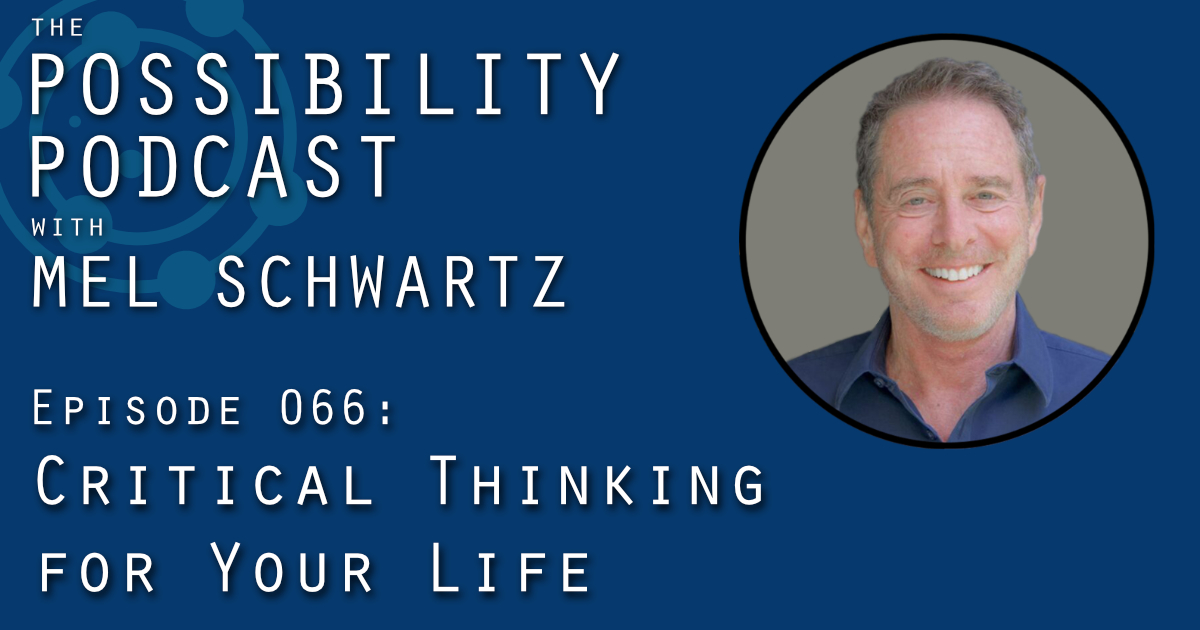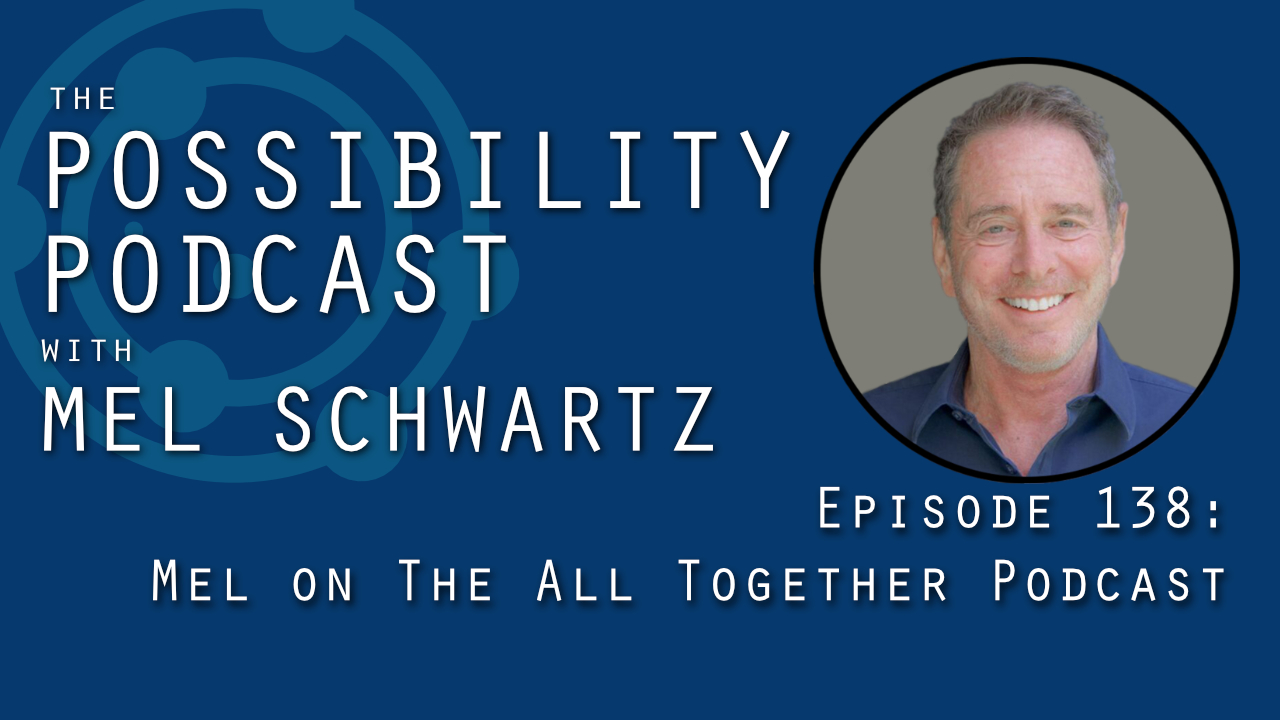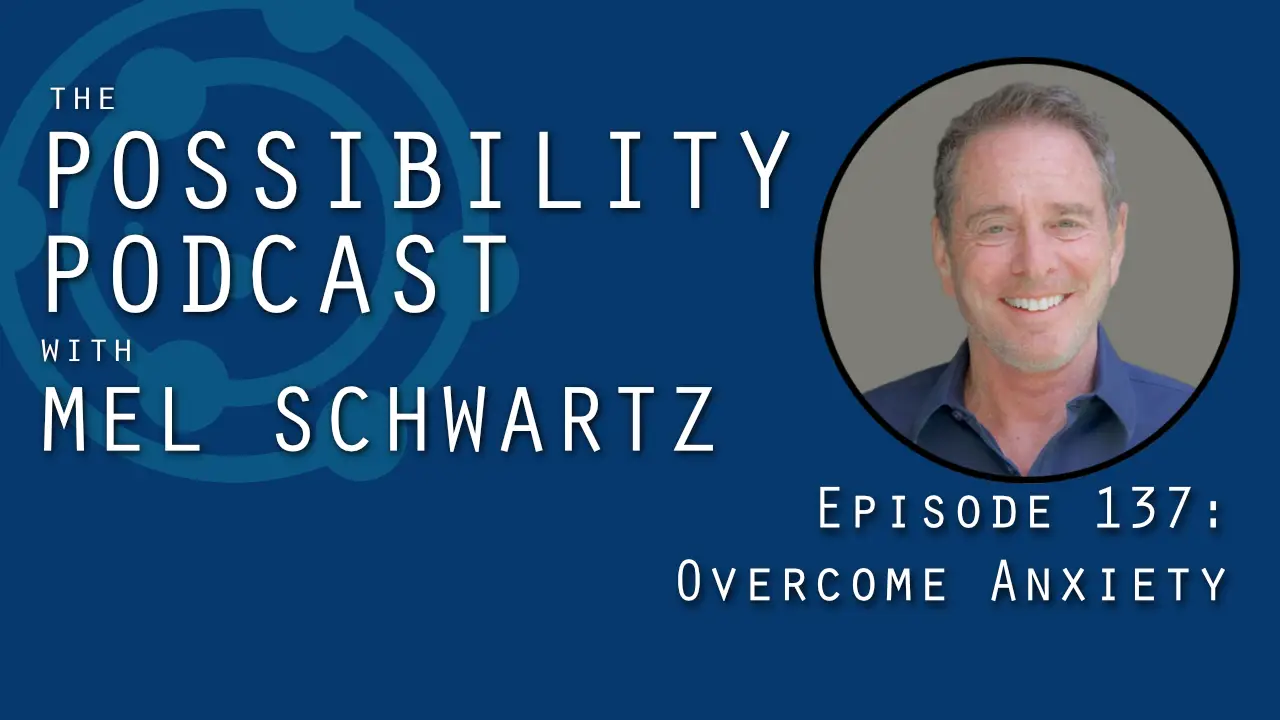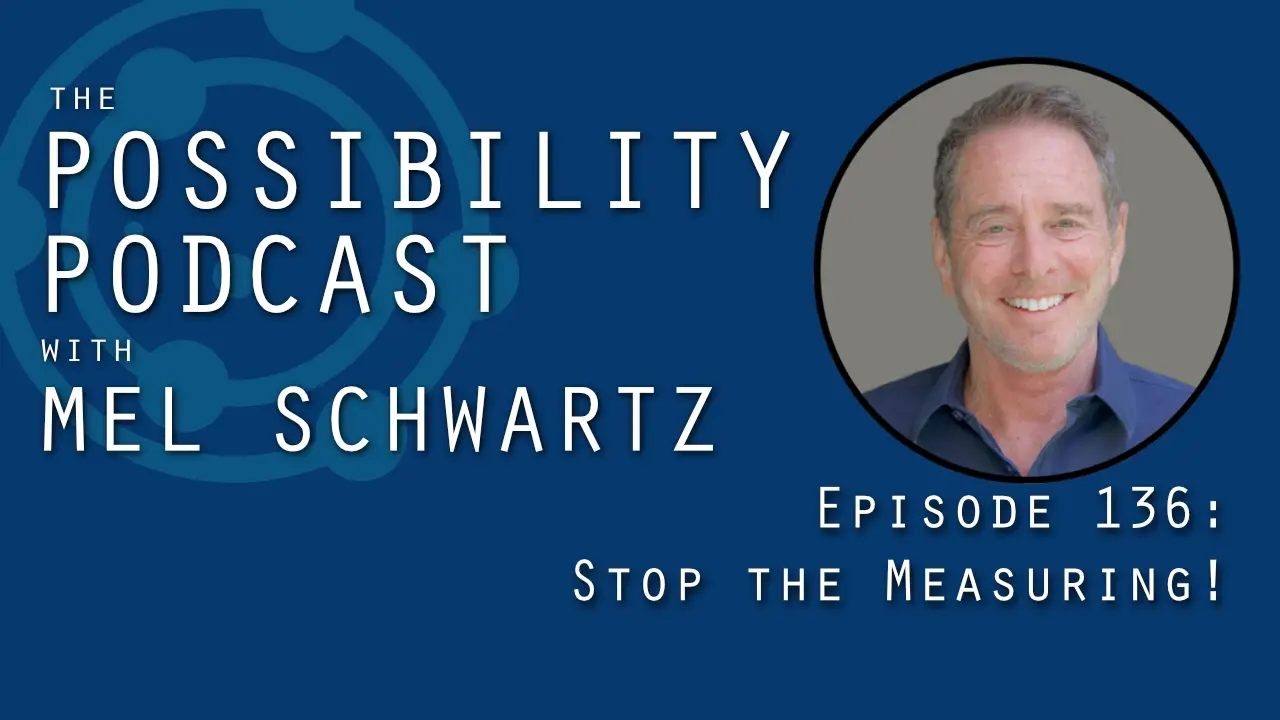Podcast: Play in new window | Download
Episode 066 of the Possibility Podcast with Mel Schwartz inspires you to employ critical thinking to live a life of purpose and happiness.
Learn…
Interested in bespoke marriage and relationship counseling from Mel Schwartz? Reach out!
- …why critical thinking isn’t just for external decisions
- …how critical thinking is integral to an authentic life
- …what critical thinking can bring to your relationships
- …why ignoring critical thinking keeps us stuck in someone else’s script
- …how to check in on your self-assumptions using critical thinking
Claim the life you were meant to live through critical thinking! What changes would you want to see? Let me know in the comments!
Want to watch this episode?
Transcript of The Possibility Podcast with Mel Schwartz #065
Hi, and welcome to today’s podcast.
We’re going to explore the nature of critical thinking today, but in a different light than you’ve probably ever looked at it before.
You see, we’re taught to think critically about things external to us.
Part of our education is critical thinking. How we can evaluate, gather information, evaluate that information, and make decisions based on rational analysis and logic. Although critical thinking doesn’t usually include our ability to intuit, and feel, but for our purposes here today, we’re going to have a wider gaze into the notion of critical thinking for your life. We are never taught how to become critical thinkers for the big picture of our life experience and we suffer because of this.
So. Let’s define critical thinking a little more deeply.
I believe, and the way that I’m using critical thinking, is to look at our operating beliefs and assumptions, and ask ourself to begin with, “How did I come to that belief? How did I come to this assumption?”
So early in life, it may be an assumption about your graduating high school, what your choice of college will be. Where you think you’ll have the best experience of college. Critical thinking after college would be, if you’re fortunate enough to have a number of job offers, which one will suit you best, and what goes into that answer, that inquiry as to what’s best for me? Is it where I make the most money? Is it where I’ll feel the most fulfilled?
From there, we move into critical thinking romantically, and boy do we run into trouble there. We operate from assumptions and feelings, but we didn’t learn the rulebook of life and how to thrive and succeed in a relationship — that’ll be a topic for a different episode; I’m not going to dive into that one today. But soon! I promise.
So critical thinking for life is these deeper operating beliefs. How do I come to them, why do I believe what I believe, and has my life experience at any point in time made me think I should reconsider this belief? It’s like, “I’ll be happy when…”
Well, early in life, I’ll be happy when I get my driver’s license, when I get out of the house, when I get a job, I’ll be happy when I fall in love and get married… nah, I’ll be happy when I have children… but wait, I’ll be happy when I can buy my dream house… two blinks of an eye, half a lifetime is passed, and that happiness, the fulfillment, the deeper meaning and purpose? Haven’t quite achieved it!
So is there a lack of critical thinking? Well on some level, yes. Critical thinking in terms of your personal life begins with this deeper consideration of “Well, if I believe I have one life to pursue,” (many of us think we may have more than one), but if I have one life to pursue, “why am I pursuing this path? Is it what my parents thought would be best for me? Is it what my peers were pursuing? Is it what my teachers and educators held out I go after? Is it any of those things? Is it all of those things?”
Is meaning and purpose important to you in your life? Many people never think about that, it’s not a deeper consideration, but ultimately, what can be more valuable in your life than living a life full of meaning and purpose?
Now, we don’t usually come to those reflections until later in life, or in midlife, and that’s regrettable.
We get on a conveyor belt of what we think will bring us happiness, what we think will bring us success, and achievement, and sadly, we may actually achieve those markers and those goals, but we’re still feeling something’s missing.
Critical thinking for life is dig in and look at your operating assumptions. Again, ask yourself how you came to them. Why do you think they’re true? And if you’re following those pursuits, how’s that working out for you?
You know that expression? “How’s that working out?”
“Well, I thought I’d be happy when I made a lot of money. I have made a lot of money.” Are you happy? “Mh. Not really. Now why am I still continuing to pursue making more and more money?”
“I will be happy when I can get that great sports car I’ve always had my eye on.”
Or, “I will be happy when I take my dream vacation.” Well, during that dream vacation no doubt it might give you pleasure, but this happiness, it’s elusive, and it’s elusive because of a critical thinking loss. A loss of critical thinking; a feeling of happiness has to come from my relationship with myself.
Doesn’t it? Is that part of my critical thinking? So instead of living your life in a straight, linear way from here to that point to that achievement to that milestone, we need to learn to navigate life. And by navigate life, it means don’t follow any common sense rulebook.
Because common sense, when you really look at it, often doesn’t make very much sense at all.
Learn to write your own rulebook. Learn to create. Be creative, don’t conform, don’t follow someone else’s template for a rulebook for life.
Critical thinking is about learning to become true to yourself. If your operating assumptions and goals are not providing you with meaning and purpose, stop and decide, “I need to re-write that script.” And if you haven’t gotten to that point yet, and you’re still in pursuit of those objectives, ask yourself, “Why? Are these objectives and goals things that I have reason to believe will give me meaning, purpose, happiness, joy, fulfillment, love? Do I believe it?”
Stop following the rulebook of life. Common sense, more often than not, make no sense.
Young people — probably more true of women than men — still have this rulebook for life that by a certain age they need to be engaged and married.
And then, by a certain age, they need to have children. Well I understand the biological clock ticking piece, but this piece about this race to get married before you know of yourself, and know that you’re making a sensible, wise decision, and then cross your fingers and hope it works out… when I’m counselling young people who are in a rush to get married, thinking then they’ll be happy?
I propose to them that half of the people who get married at that young age they’re just that much quicker to their eventual divorce.
Now, I am in no way suggesting that love and marriage and committed relationships shouldn’t be honored and valued. But they’re not digging into the deeper things. How well do I know myself? How well do I know my future partner? What are the questions we asking each other? You see, they’re not navigating life, they’re just slipping by on the surface.
Critical thinking for life requires what I call authenticity. Authenticity means I’m not living my life from anyone else’s script.
Now that doesn’t mean I should get lost in the perilous inexorable analyzing. I’m not proposing analyze your thoughts, your feelings, your actions to death. Not doing that.
But learn a sense of attunement. What feels good? What am I gravitating toward? What could that look like for my future?
We act in such a conformist way where we are terrified to step out of the script of life that was laid out for us, and we just join in that script and we don’t take authorship of own life.
That is profoundly sad! Sad isn’t even a sufficient word. It’s unimaginable in your lifetime, to not take ownership of why you’re living the life that you choose to live.
How many among us can say that we are living the life we choose. Did we choose? Again, we chose a college. A job. A relationship. But then the choosing stops. You may choose a house, you may choose a car, you may choose to have two children or three children, but are you choosing a life worth of value and meaning and purpose to yourself. Critical thinking will take you there. Stop, ask yourself, “How’m I feeling? How am I doing? What do I need to attend to? What changes do I need to think about?” And don’t consider, don’t think about, “What will people think of me if I do this?”
No one is looking — except perhaps those closest to you. You’re not on stage. You have in this life the ability to be your own protagonist, your own hero.
Critical thinking for life: tune in — and I don’t mean critically; when I say “critical” here I don’t mean judgmentally. Critical thinking for life means self-evaluating, tuning in, being true to yourself, genuine to yourself, and authentic to your own being.
The relationship that’s going to impact you more than any other relationship in your life is the relationship you have with yourself.
To get there, employ critical thinking about your beliefs, and values, and assumptions, and ask yourself, “Am I on the right path? What adjustments do I need to make?” Don’t operate from fear, operate from your own authenticity… and you’ll be living a far better life.
I hope you enjoyed today’s episode; I look forward to speaking with you again soon. Bye for now.
Subscribe to The Possibility Podcast with Mel Schwartz
Don’t miss a single Possibility Podcast with Mel Schwartz! Subscribe for free in iTunes / Apple Podcasts, Spotify, RadioPublic, Spreaker, or wherever you listen to podcasts. Or, simply copy / paste the RSS link directly into the podcast app of your choice!
Please Rate and Review
If you enjoy The Possibility Podcast with Mel Schwartz, please take a moment to rate and review the show in iTunes / Apple Podcasts or Podchaser. It only takes a few minutes, and adding your review is as easy as clicking this link.
Your rating and review helps raise the visibility of The Possibility Podcast with Mel Schwartz, especially on iTunes / Apple Podcasts, which is one of the biggest podcasting platforms today. More visibility for the show means more listeners… and that growth means the show reaches — and helps — more people like you.
Thank you!
Talk With Mel!
Help others when Mel helps you: Contact Mel and find out how you can be a caller on the show and ask Mel a question. He’ll put the Possibility Principle to work for you, and your conversation will be recorded for use in a future episode of the podcast so other listeners can benefit.




